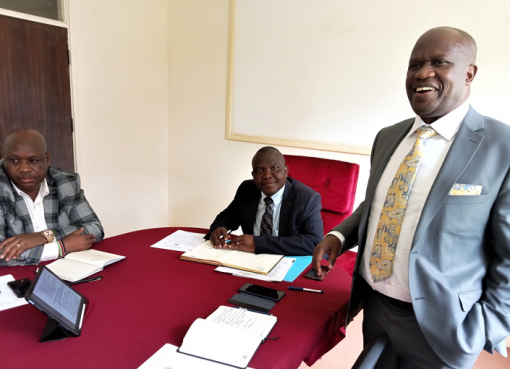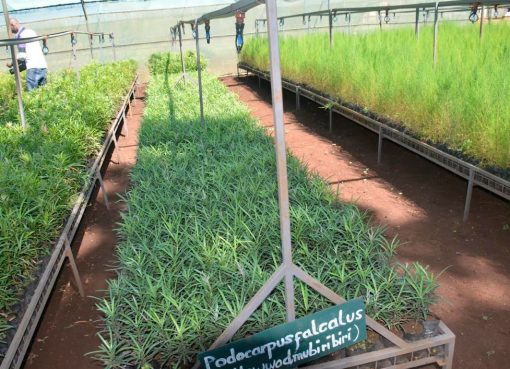The Kenya Private Sector Alliance (KEPSA) has thrown its weight behind the Ministry of Industrialisation, Trade, and Enterprise Development’s initiative to develop a National Automotive Policy (NAP), which will help to grow the Automotive Industry.
KEPSA has strengthened its position on The Kenya Standard 1515 citing the critical role Automotives play in the economy by facilitating the free movement of goods and people.
In a press statement, KEPSA Chief Executive Officer (CEO) Carole Kariuki stressed that KEPSA fully supports any policy intervention aimed at building the market for local products while lowering the cost of doing business for the global competitiveness of Kenya’s products and services.
“The Policy which gives a regulatory and institutional mechanism to develop the industry is a plus for the country. Passing the Kenya Standards 1515 which lowers the importation age of trucks, buses, and prime movers is an important incentive to increase the volume of vehicles produced locally hence attracting investment into the Industry,” said Kariuki.
She noted that Foreign Direct Investment (FDI) is widely believed to be a catalyst that promotes economic development and as many countries compete to attract FDI, it becomes important for the policymakers in the country to understand the effect of FDI on productivity.
“Policies that reduce vehicle importation age are normal for countries that want to develop a sustainable automotive industry like South Africa, Morocco, and Egypt who are also our competitors when it comes to the African Continental Free Trade Area,” added Kariuki.
Kariuki noted that Kenya has registered continuous growth in its Gross Domestic Product (GDP) in the recent past, thereby creating a promising environment for investments where agriculture, manufacturing, wholesale, retail, and financial services are the highest contributors to Kenya’s GDP and have been prioritised under the economic pillars of Kenya Vision 2030.
She added that The Kenya Vision 2030 policy provides the national development goals in promoting inclusive and sustainable growth to make Kenya a globally competitive and prosperous nation.
“Globally, the automotive industry has been a pillar of industrialisation for many economies and a key driver of macroeconomic growth and technological advancement,” Kariuki stressed adding that the industry has consistently contributed directly and indirectly to the GDP, foreign investment, employment, and innovation in developed countries such as Germany, the United States, Japan, South Korea, Italy, China, and several other emerging economies (Egypt, Morocco, South Africa, India, Thailand).
In Kenya, according to the CEO, the automotive industry has the potential to significantly contribute to the manufacturing sector’s growth and the government targets to increase its share of the GDP from the current 9.2 percent to 15 percent by 2022 as part of the Big Four Agenda.
Karuiki projected that these estimates will also be instrumental in achieving the aspirations of Vision 2030, of creating a globally competitive and prosperous country with a high quality of life.
“If we take a look at a country like the United States, the auto industry is one of its most important industries. It has historically contributed 3 – 3.5 percent to the overall GDP. According to international estimates, the average annual turnover of the world automobile industry is more than 2.75 trillion,” she said.
Further, Kariuki stated that the automotive industry has a long value chain creating both backward and forward linkages in which the former include design and manufacture for vehicle bodies and other components, and the consumption of steel, iron, aluminum, plastic, glass, carpeting, textiles, computer chips, rubber, and much more whereas the latter is created through vehicle dealers, garages, leasing firms, insurance firms, and financial institutions among others.
The KEPSA CEO said that the Automotive Industry has a great potential for creating more jobs than the importation of used vehicles because of the big value chain adding that the Industry can create 5 to 11 more jobs within its value chain for each job in the assembly plants.
“With a current total assembly volume of 11,000 units in 2021, the local industry is barely utilising 30 percent of its capacity which is 34,000 units per annum on one shift. In this case, by implementing the Standard, the industry has the potential to grow by more than 50 percent,” she remarked.
She further stated that the Local Automotive Industry can grow the country through technology transfer since the automotive industry is one of the fastest adopters of technology.
The Kenya Standard 1515 is a Standard or Regulation under the Kenya Bureau of Standards which provides guidelines on vehicles that are locally produced and imported into the country. In essence, the Standard governs vehicle importation age limits and provides for the allowable vehicle emission standards.
By Michael Omondi





